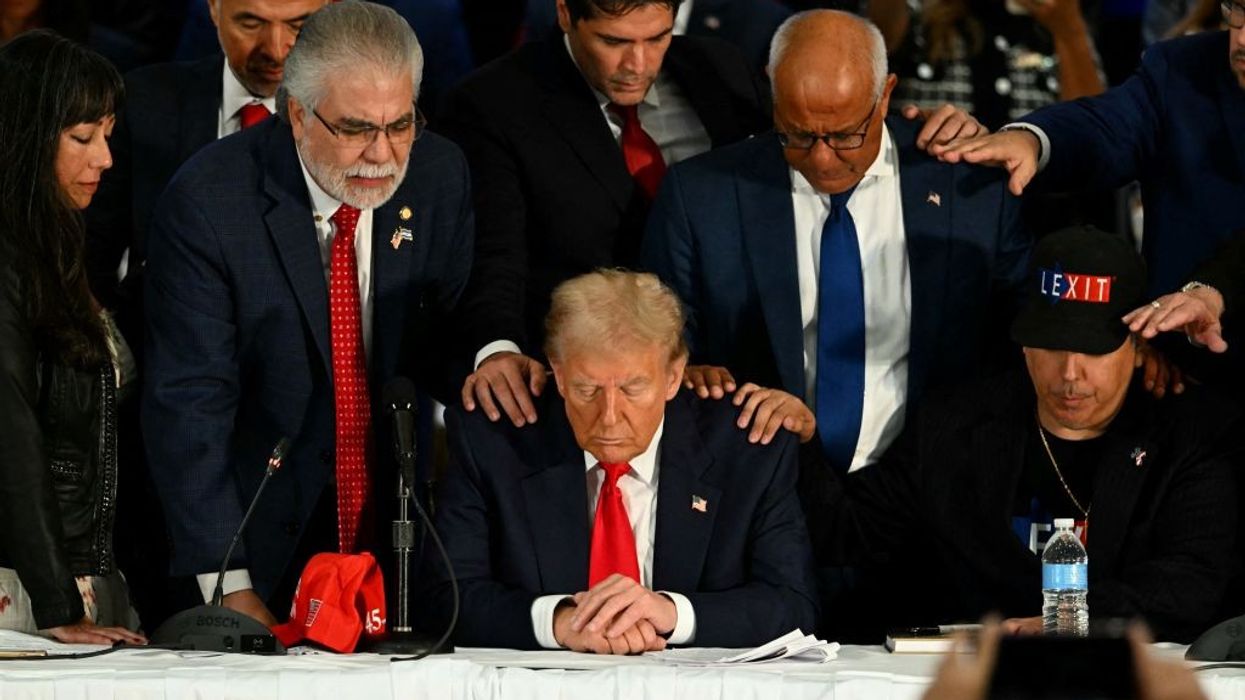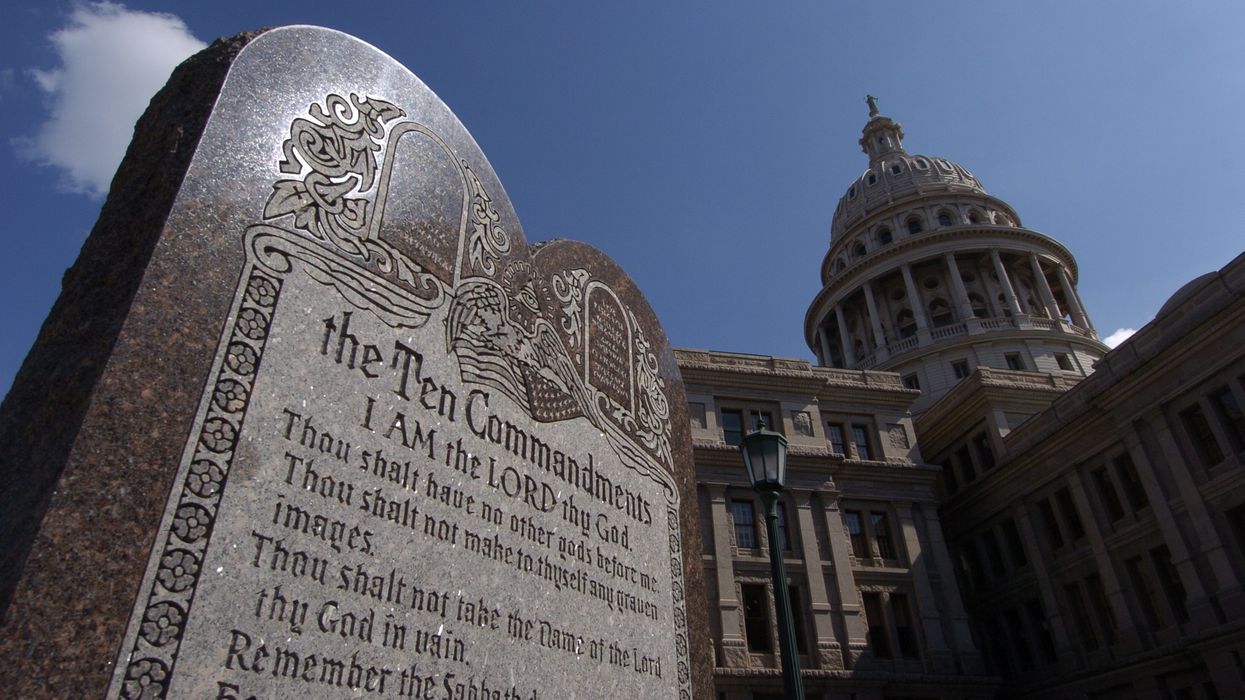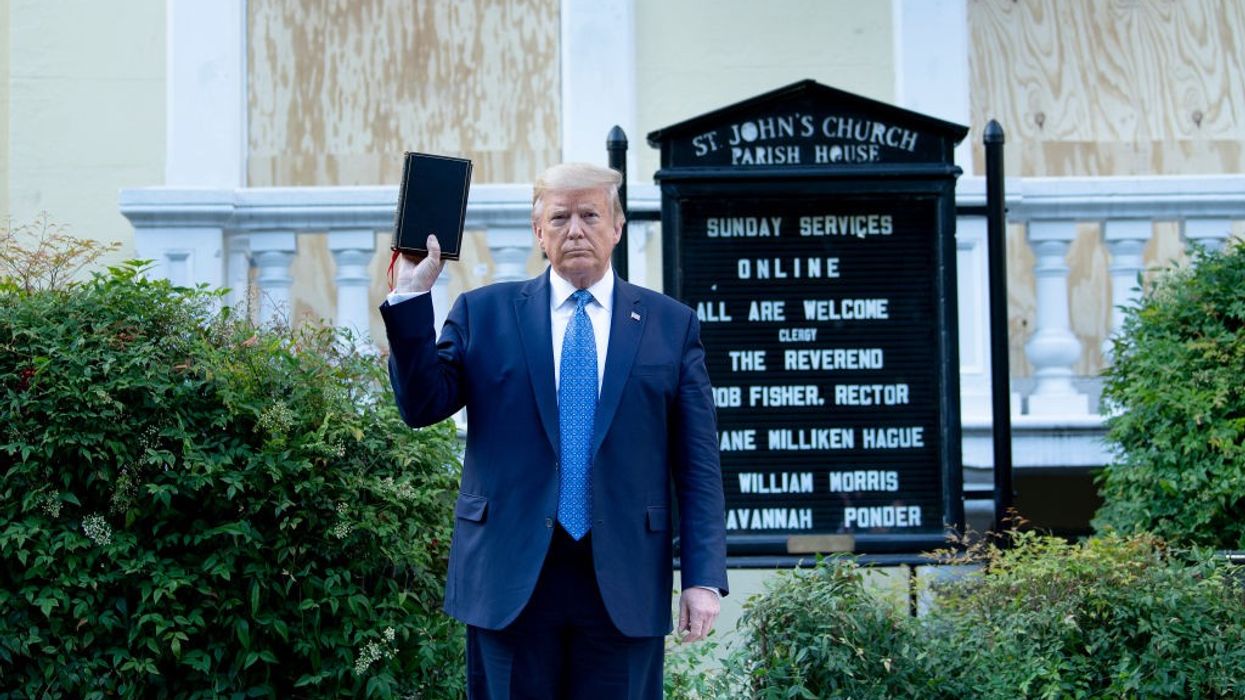Critics Warn Trump's 'Religious Liberty' Panel Wants to Impose 'Christian Nationalist Agenda' Nationwide
One critic warned that the Trump-created Religious Liberty Commission is "working to obliterate church-state separation, turn public schools into Sunday schools and misuse religious freedom as a license to discriminate."
Church-state separation advocates on Monday issued new warnings about the Religious Liberty Commission established by US President Donald Trump earlier this year.
Ahead of the commission's meeting that took place on Monday morning at the Museum of the Bible in Washington, DC, Rachel Laser, president and CEO of Americans United for Separation of Church and State, argued that Americans should be particularly worried by the commission's focus on public education.
"Yet again, President Trump's Religious Liberty Commission demonstrated that its true purpose is to advance a Christian Nationalist agenda and impose one narrow religious view on the nation’s public school children," Laser said.
Laser went on to highlight some of the featured speakers at the gathering, including one teacher who has said she's engaged in "spiritual warfare" against the LGBTQ+ rights movement and a former high school football coach whom the US Court of Appeals for the Ninth Circuit found created "a deceitful narrative" about coercing his players to pray with him.
Laser went on to charge that "the majority of speakers at today’s hearing are affiliated with Christian Nationalist organizations," which she said were "working to obliterate church-state separation, turn public schools into Sunday schools, and misuse religious freedom as a license to discriminate." She further said the commission was "an outright assault on our country’s promise of church-state separation."
Laurel Burchfield, advocacy director for Mainstream Coalition, also warned about the commission's ambitions in an editorial published earlier this year by The Missouri Independent.
In addition to citing the concerns raised by Laser about the commission's effort to influence public school curriculum, Burchfield argued that it would also attempt to "rewrite history" to justify false claims that the US was founded as an exclusively "Christian nation."
She also said that the commission has ambitions to "promote religion in all parts of American culture, politics, and public life."
Monday's Religious Liberty Commission meeting began with a tribute to slain right-wing activist and Christian nationalist Charlie Kirk, before moving on to a series of panels whose stated goal is to "understand the historic landscape of religious liberty in the educational setting, recognize present threats to religious liberty in education, and identify opportunities to secure religious liberty in this context for the future."
"These individuals were hand-selected for holding a worldview that advances the Christian Nationalist agenda and threatens any religious beliefs that fall outside of this ideology," said Burchfield.


